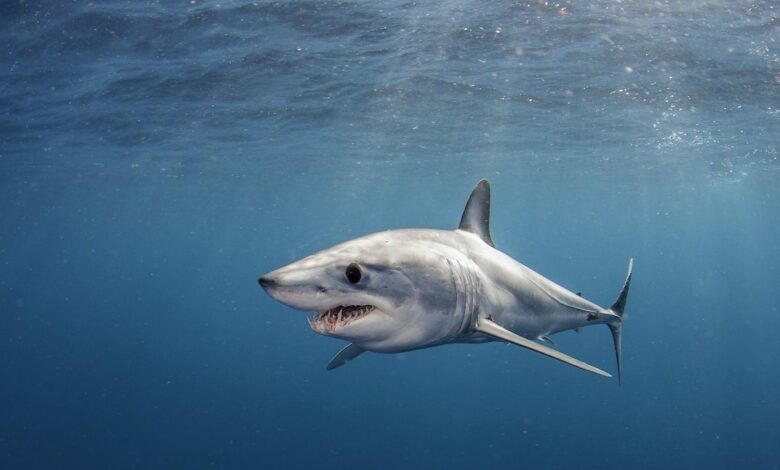
The Scientific Committee of the National Institute of Oceanography and Fisheries (NIOF) issued its final report on the shark attack incident in the Marsa Alam area, south of the Red Sea, in which it conducted a comprehensive marine survey commissioned by the head of the institute, Abeer Mounir.
Al-Masry Al-Youm has published the details of the report and the scientific recommendations that aim to reduce shark attacks in the future, while enhancing safety and security measures on tourist beaches.
The report noted that this attack, though rare, was not unexpected due to the presence of naturally predatory sharks in the waters of the Red Sea, especially in shallow coastal areas.
Further comprehensive studies and research on shark behavior are required, the report added, in cooperation with government agencies and the tourism sector, to ensure sustainable development and protection of the marine environment.
This report serves as an important scientific step towards a deeper understanding of shark attacks, and developing practical solutions to ensure tourist safety and protect the unique biodiversity of the Red Sea.
The most important recommendations reached by the report
- 1. Establish a shark monitoring and follow-up program.
Implementing scientific program to monitor and follow shark behavior for a year in coastal areas, in cooperation with government agencies, non-governmental organizations and tourism sector companies, while providing the necessary logistical capabilities for the research team.
- 2. Conduct awareness seminars and workshops
Organizing seminars and workshops for tourism project owners, boat captains and marine vessels to spread environmental awareness and explain the best ways to deal with and avoid shark incidents.
- 3. Providing scholarships and postgraduate programs
Allocating scientific scholarships and master’s and doctoral programs for recent graduates, with the aim of forming scientific cadres specialized in studying the behavior of sharks and dangerous marine organisms.
- 4. Establishing a committee to manage shark incident crises
The report recommended forming a specialized committee to manage shark attack crises, including representatives from the Red Sea Governorate, the Environmental Affairs Agency, the National Institute of Oceanography and Fisheries, and security and health authorities.
- 5. Enhancing maritime safety procedures
The report emphasized the need for trained rescue personnel to be present on hotel marine platforms, with the provision of advanced ambulance equipment and fast rescue boats, to ensure immediate intervention in the event of accidents.
Preventive measures to reduce shark attacks:
- Avoid swimming far from the shore in deep, steep areas.
- Do not swim alone, as sharks usually attack isolated people.
- Avoid swimming at sunrise, sunset and at night, as sharks are active in search of food.
- Refrain from wearing jewelry or shiny clothing while swimming.
- Avoid going into the water if there are any wounds or bleeding.
- Do not feed sharks, as this behavior changes their nature and increases the likelihood of them attacking humans.
The committee recommended the necessity of conducting studies on the behavior and physiology of sharks in the Red Sea waters, using the latest scientific techniques, such as tracking and monitoring devices.
It also recommended conducting studies to estimate the stock of shark species in Egyptian waters in cooperation with neighboring countries, to develop a plan to manage these species and maintain the ecological balance.
The report said that the shark that caused the accident was of the Mako type, which is one of the most dangerous shark species in the world.
According to scientific reviews, there are two types of Mako sharks in the Red Sea: Isurus oxyrinchus and Isurus paucus.
Both species are globally threatened with extinction and are rarely seen near beaches.
Further recommendations
A full copy of the scientific report is scheduled to be submitted to Minister of Higher Education and Scientific Research Ayman Ashour to discuss ways to implement these recommendations on the ground, in cooperation with the relevant authorities in the Red Sea Governorate.
One of the report’s contributors, Ashraf Siddiq, confirmed that global studies on shark behavior indicate that noise in the water, swimming in deep areas or close to fishing areas, increase the likelihood of shark attacks.
The report also recommended developing a plan to manage marine waste, regulate fishing, and combat marine pollution, to avoid changing shark behavior and ensure the continuation of ecological balance.
The report further warned against throwing dead animals and waste from passing ships, as this can attract sharks to coastal areas.
Edited translation from Al-Masry Al-Youm




